
Source: Lightscape on Unsplash
Sustainable Travel
What is sustainable travel?
What is sustainable travel?

Sustainable travel primarily means to reduce the negative impact of tourism on the natural and cultural environment of the destination. As travel has become more accessible and we are venturing deep into places that were once considered off-beat or remote, we also need to consider the ramifications of our travel practices. Sustainable travel or sustainable tourism is not just about protecting the environment but also preserving the local culture and traditions. Tourism should offer socio-economic benefits to the host community without making a caricature of their heritage.
A major aspect of sustainable travel is eco-tourism, which means visiting threatened ecosystems to help boost conservation efforts and provide a livelihood to the local community. This form of travel is not limited to the activities of eco-warriors and volunteer tours in developing countries. Sustainable travel can also mean relying on public transport to access destinations and attractions, purchasing local goods, and opting for sustainable restaurants that create menus using seasonal and local ingredients.
Sustainable travel cannot be implemented overnight, but a few right decisions and activities during each holiday can help tip the scales for the better.
The rise in popularity of sustainable tourism
The rise in popularity of sustainable tourism

Sustainable travel might have been championed by climate activists, but it's no longer a novel concept. Travelers today, are more socially informed and want to make holiday decisions that leave a positive impact.
The Booking.com 2023 Sustainable Travel Report, which collected data from 33,000 travelers across 35 countries, states that 76% of travelers wish to travel more sustainably. While nearly half the polled members felt that sustainable travel options were too expensive, the majority of the group also felt that the need to act towards more conscious travel decisions is imminent.
As travelers seek more sustainable options, governments rise to the demand by making impactful changes. In Puerto Rico for example, the government is encouraging sustainable exploration-based excursions in El Yunque National Forest. Moreover, hotels are working towards reducing their carbon footprint, water wastage, and reliance on traditional sources of energy.
The best practices for sustainable travel
The best practices for sustainable travel

Source: Geio Tischler on Unsplash
Traveling sustainably involves making conscious decisions that help to counter the negative aspects of travel. However, sustainable travel is not a one-sided effort and can only be possible with locally led initiatives. These, in turn, benefit not only the surrounding natural environment but also the local communities that rely on tourism. Sustainable travel can also encourage locals to stay back in their communities instead of migrating to cities as it offers them an opportunity to improve their socioeconomic standing.
Environmental considerations:

Source: Luca Bravo on Unsplash
-
Reducing your carbon footprint
Travelers can reduce their carbon footprint before they begin traveling, even if their entire holiday is not sustainably planned. The easiest way is to switch off air-conditioning and other electronic devices when leaving your hotel room. The same practice can be followed when staying at a hotel or Airbnb during your holiday.
If you have the luxury of time, opt for a slower mode of transport such as a train to arrive at your destination. If possible, use public transport even during your stay or rent bicycles when traveling to bike-friendly cities such as Amsterdam. Moreover, you can request to not have your linen and towels changed daily at the hotel.
-
Saying no to non-reusable plastic
Instead of buying plastic water bottles, purchase a steel bottle and fill it at the hotel before heading out. Refuse plastic straws and carry a reusable steel straw instead. Impressively, countries in the developing world are at the forefront of sustainability at the grassroots level. Many restaurants in Vietnam opt for bamboo or biodegradable straws made out of materials such as wild grass, while street food stalls in India use clay or steel utensils to serve food.
When heading out to local markets, take a reusable cloth bag to carry all your purchases and refuse the flimsy plastic bags. Travelers can also carry handwash and reusable cloth napkins instead of relying on tissues and wet wipes.
-
Waste reduction and management
Sustainable properties try to follow a zero-waste principle, wherein even food scraps are used as compost instead of being thrown away. Leftover food from restaurants is often donated to local charities. One surefire way of reducing waste is by eliminating plastic, which will mean providing glass bottles in guest rooms and restaurants. Instead of single-use shampoo and shower gel, hotels can opt for wall-mounted dispensers. Properties may also choose to go paper-free and instead send you the bill via email.
Along with the properties, travelers must contribute towards reducing waste, too. These practices are even more significant when visiting remote destinations in rainforests and mountains. Before booking a property, make sure to read about the sustainable initiatives and the steps they're taking to reduce waste and appropriately recycle waste.
-
Conserving water and energy
It's better to choose quick showers over a long drawn-out bath, even though the latter seems more tempting after a long day on your feet. If you're traveling in India, often the hotel bathrooms will also include a bucket, which helps you consume the least amount of water for a bath. When it comes to laundry, some properties provide controlled facilities that you can use. Make sure to check with the property whether you can wash your clothes by yourself or not. Moreover, travelers must always switch off the air-conditioning and electricity when stepping out of their rooms.
-
Choosing public transport
Public transportation is cheaper and it's also a way to interact with the locals and gain insider knowledge. Additionally, using public transport helps to reduce the traveler's carbon footprint. For example, trains emit the lowest amount of CO2 per passenger per mile. Sharing a car or traveling by bus are also better options compared to traveling by private car.
Aside from being a greener alternative, train travel can be a wonderful opportunity to witness various lovely landscapes and natural attractions. Canada, for example, offers some incredibly scenic eco-train trips. While we live in a world where everything is fast-paced and our lives can be controlled by our phones, there's an old-world charm to slow travel. It's economical, offers unique opportunities, and allows travelers to explore off the beaten track.
-
Choosing off-beat locations
Between January and September of 2023, around 975 million tourists traveled internationally, and these numbers will only rise. Traveling sustainably can also mean visiting off-beat locations or picking activities that take you away from the tourist trail to avoid overcrowding. Slovenia is one of Central Europe's wonders for those looking for something off the beaten track. Here, visitors can hike well-marked routes. Moreover, hiking trails in Slovenia are not only found near the popular Lake Bled but are also close to lesser-known natural attractions such as Seven Lakes Valley and Pugled-Žiben Forest Reserve.
Off-beat does not have to mean budget; it can also mean luxurious eco-resorts that are helping rebuild communities. The luxe rainforest resorts around the world are perfect for a secluded honeymoon or a romantic holiday with your partner. They even host educational tours that allow travelers to witness the first-hand impact of their travel choices.
-
Staying in eco-friendly accommodations
Travelers can choose to stay at eco-friendly hotels and resorts while traveling. These properties have an efficient waste management program in place, rely on solar energy, and implement rainwater harvesting, among other practices.
Booking.com lets users filter their search via their special "travel sustainable badge" that relies on 32 different measures to judge if a property is sustainable. Accor, IHG, and Radisson are part of Green Key, an independent not-for-profit certification that aims to fulfill the 17 Sustainable Development Goals set by the United Nations.
While traveling, tourists should also eat at local restaurants and sample regional cuisine, as these would leave the lowest carbon footprint from the journey from the farm to the table. Another option is to search for eco-friendly hotels in your destination and enjoy a delectable fine dining experience at an on-site restaurant.
-
Visiting parks and protected areas
Traveling away from the city and visiting national parks, reserves, and other protected areas is an excellent way to travel sustainably. Activities in these areas are designed around exploring and promoting the natural environment, including kayaking and canopy walks, among others. These activities help provide monetary benefits to the locals or the authorities so they can protect these delicate ecosystems. Visiting these destinations also aids conservation efforts in the region to protect wildlife and their natural habitats.
Social, economic, and cultural considerations:
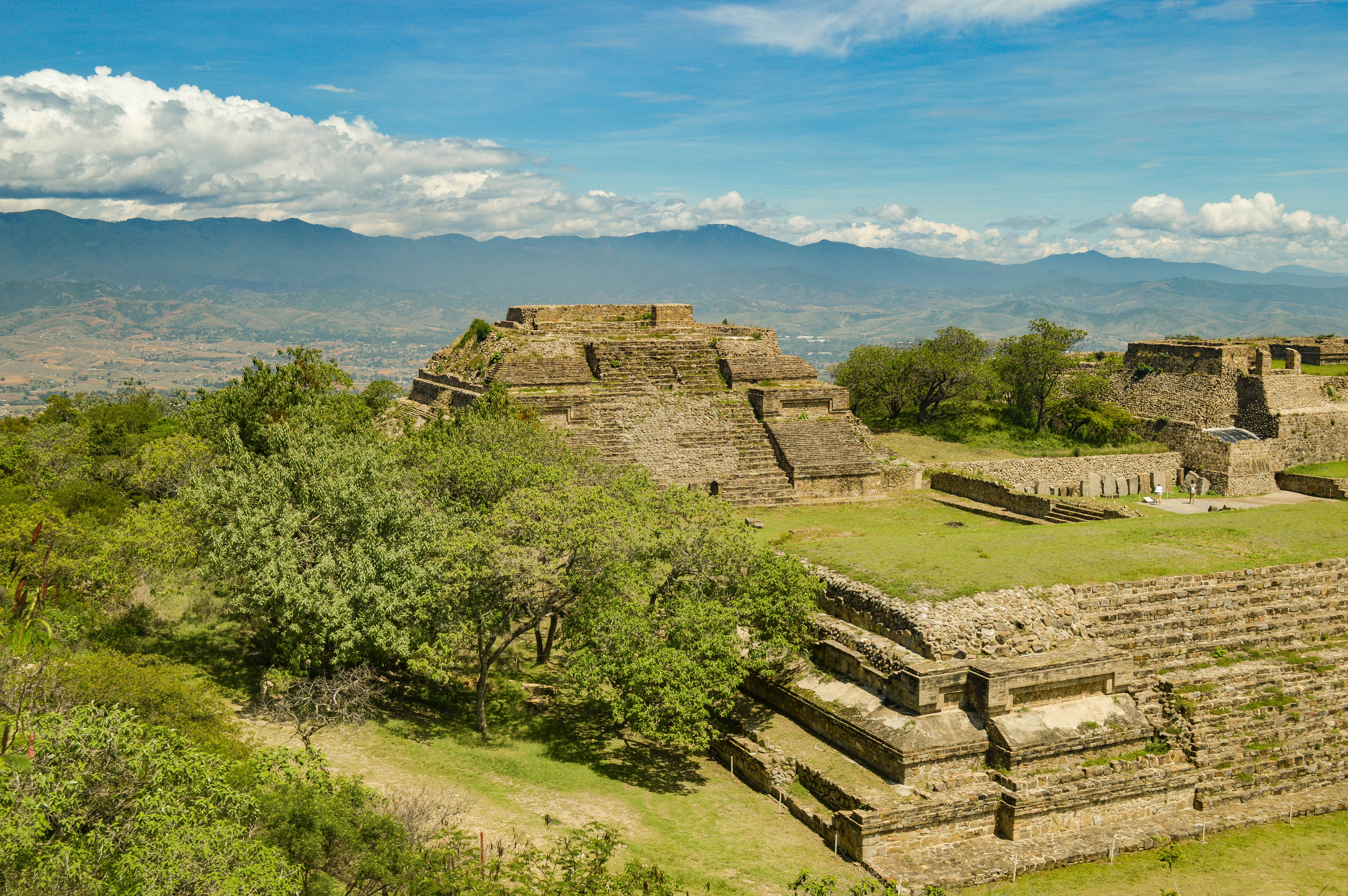
Source: Matthew Essman on Unsplash
-
Respecting the cultures of local communities
When visiting local villages or attractions such as ancient ruins, keep in mind that you're a guest, and it's important to show respect towards the people who have opened up their houses and attractions for you. These communities usually rely primarily on tourism for survival, so it's best to help them in their endeavors. As global citizens, travelers must be aware of local customs and traditions and help protect the structures and monuments in these areas.
Before your travel, you can read up on the local culture of the community and hire a local tour guide who can further explain its significance.
-
Supporting local businesses
Whenever possible, book your tours via a local operator so that they gain from the economic activity in the area. Certain destinations also offer community-based tourism where the money is directly injected into the local economy. Homestays in Indonesia, for example, are a great way to explore smaller off-beat islands such as Lombok.
Trying local food is one of the best ways to understand a region. So when you travel, make sure to opt for local restaurants for an authentic meal. In Southeast Asia, street food is ubiquitous and a right of passage for travelers. These joints whip up piping hot, made-to-order meals, thus also helping reduce food wastage.
-
Community engagement and training
Community-based tourism is a form of sustainable tourism that offers locals a chance to earn additional income and improve their standard of living while offering tours and excursions for visitors. As communities notice the positive change that tourism can bring, they design programs where tourists can witness the changes and impact firsthand. Tourists can also gain local skills during their stay. For example, you can get jungle survival knowledge from the local tribes when you visit the Penan Villages in Borneo.
Education and training programs within impoverished communities can also help raise awareness of conservation. The locals can then be trained to host or lead tour groups and offer a first-person perspective into the local way of life.
-
Volunteering
Earlier, volunteering might have meant helping out in your local soup kitchen, but today, volunteering can benefit far-flung corners of the world. A volunteering holiday is a minimum of one week in length and allows travelers a chance to bring positive change at the grassroots level.
Animal volunteering allows travelers to help preserve wildlife in many ways. You can help rehabilitate injured animals at a sanctuary in Namibia or assist with Costa Rica’s sea turtle conservation program. Volunteer tours could mean helping restore the coral reef in Indonesia or teaching English in Vietnam. When travelers book a volunteer tour, their food and lodging are generally included. They're also given time off during the program, which they can use to tour the area.
-
Joining sustainable travel workshops
If you have never tried sustainable travel, a good way to start is to research and join online groups where your queries can be answered. Additionally, you may attend any local sustainable workshop or travel fair taking place in your city.
After you return from your travels, remember to rate your experience and share how it helped the community. You can talk about places you visited and hotels you stayed at to help out other sustainable travelers.
The benefits of sustainable travel
The benefits of sustainable travel

Source: Nate Johnston on Unsplash
-
Environmental conservation
The biggest benefit of sustainable travel is environmental conservation, as travelers look to reduce the negative impact of their holiday plans. Moreover, as volunteer tours and community-based tourism increase, it will lead to a decrease in logging operations and wildlife poaching.
In the Indian state of Sikkim, for example, large plastic waste collection bins are located where travelers need to drop their waste products before they can enter the fragile Northern part of the state. This ruling is strictly followed by the local drivers and operators, who always empty their cars diligently. Additionally, they always carry reusable water bottles with them.
-
Stronger sense of community
The longer one stays at a place or works towards helping renew the area, the stronger their attachment to that community. Since sustainable travel aims to benefit all sections of the community, it connects travelers to local operators and businesses through community-based tours. This helps to generate a feeling of belonging and that all partners matter to one another and the group as a whole. There's a goal to meet the community's needs by continuous commitment.
-
Physical and mental well-being
Sustainable travel also promotes better physical and mental health as tourists are away from the harsh pollution of city life. The clean surroundings will do wonders for your skin and hair. Additionally, the lack of high-speed internet services allows travelers to disconnect from the world and realign with their inner selves.
A nature holiday in Mongolia or a weekend away near the hot springs of Oregon will leave visitors rejuvenated and recharged after their break. Food consumption on these holidays also leaves just a small carbon footprint as the produce has been locally grown. Visitors are also not likely to come across an abundance of packaged goods such as chips and sodas.
-
Cultural preservation
Sustainable travel is one of the best ways to help preserve historical attractions, some of which welcome tourists beyond their infrastructural capacities. This could mean visiting during the off-season or skipping the popular attractions altogether and heading off the tourist trail. This would also lead to a more authentic experience, where travelers can interact with locals and try dishes usually unavailable at tourist-friendly restaurants.
Moreover, visiting an off-beat destination could bring to light any hardships a remote local community is facing and allow them to get in touch with organizations or start a GoFundMe to help them meet their needs.
-
Educational experiences for younger travelers
The early years of an individual are always the ones that influence them the most. If you're traveling with children, help them understand the ill effects of unsustainable travel and the steps you're taking to combat the same. Take them to parks, waterfalls, and off-beat locations to ensure a pleasant educational experience. If possible, have them accompany you on a short volunteering trip that will help them develop a sense of community.
-
Eco-friendly innovations
As more and more travelers opt for sustainable travel options, the travel and hospitality industry will realize the need to fill the gaps in supply and demand. This will lead to creative hotel designs that are energy-efficient and achieve net-zero emissions. Restaurants could switch to edible cutlery and join a food waste program where unserved or unused food is directed to soup kitchens daily. Additionally, sustainable travel activities will influence the local government to take initiatives towards a greener future.
Some challenges faced by sustainable tourism
Some challenges faced by sustainable tourism

While it might seem that sustainable travel should be a no-brainer, the industry faces several challenges. One of the biggest is the lack of awareness of the concept and the reason behind sustainability. It also includes pushback from stakeholders because of the cost of making the switch to green energy and sustainable practices. Let’s take a look at some of the challenges faced by sustainable tourism.
-
Lack of awareness and understanding
This is the biggest challenge to overcome for sustainable tourism to become the norm in the industry. In this regard, governments are working with local NGOs at the grassroots level to help the communities understand the need for sustainability and the efforts being made. Often, communities might not be willing participants as they're not directly affected by the negative effects of fast travel.
-
Lack of government regulations
For a program such as sustainable travel to be successful, government backing is essential. Governments can form a framework that guides communities towards achieving sustainability goals. This would include initiatives such as a reduction in CO2 emissions, mandatory solar panels, and a recycling program. Moreover, they can offer free certifications for hotels and operators who practice sustainability, such as in Germany.
-
Greenwashing
This is when companies falsely project themselves or their products as eco-friendly, thus leading to an increase in profits without any benefit to the community. This is usually a marketing or a PR ploy to make a company seem committed to battling climate change. So, make sure to do your research from different sources about a particular establishment before booking a slot with them.
-
High energy and water consumption by hotels
Hotels, in general, consume large amounts of energy and water to efficiently run all their operations. Reliance on traditional energy sources can be reduced by installing solar panels and collecting rainwater. Moreover, newer properties can be constructed using design technologies and materials that enable a constant airflow and are naturally cooling.
-
Poor waste management by hotels
Hotels generate a large amount of waste, and it's not always disposed of properly due to a lack of awareness or proper infrastructure. When waste is dumped in remote locations, it clogs the soil, which affects plant growth and pollutes nearby water bodies. This can be reduced substantially by eliminating the use of plastic. Recycling efforts are also helpful in effective waste management.
-
Unsustainable transportation
Most travelers opt for air transport as it's faster, and with the emergence of low-cost airlines, flights have also become more affordable. This has led to the construction of more airports to increase connectivity, but the side effect has been an increase in greenhouse emissions. So, when visiting a new place, it's better to research the available public transportation, such as buses and trains.
-
Animal exploitation
Wildlife tourism sometimes fosters unethical practices, which include elephant rides in Thailand and camel safaris in Egypt, to name a few. There are also opportunities for swimming with dolphins and cage diving with sharks. Note, though, that these animals are often ill-treated and kept away from their natural habitat for the amusement of human beings. Tourists can help phase out animal exploitation by choosing not to participate in these tours and activities.
-
Rising trend of workations
The emergence of workations and working from remote locations has led to an increase in cell phone and internet towers in places that were previously off the grid. These towers are infamous for emitting harmful radiation. As more tourists begin to visit remote locations for workations, it also puts a strain on the existing infrastructure, as the destination was probably not meant to support such large numbers.
-
Overcrowding and littering
When a destination witnesses a surge in tourism beyond its capacity, it leads to overcrowding. This might result in long wait times at attractions, which are generally taken advantage of by illegal vendors selling food and cheap plastic wares such as portable fans and bubble makers. It also leads to the problem of littering. To avoid this, you can consider looking for less-known or off-beat holiday destinations.
Top destinations with eco-hotels around the world
Top destinations with eco-hotels around the world

Source: Unsplash
It would be wrong to think that sustainable tourism can only take place in natural surroundings. Since sustainable travel is about reducing the negative impacts and creating positive ones while traveling, it can be practiced in all forms of tourism and destinations around the globe. Let’s take a look at some of the top destinations with eco-hotels.
Destinations with eco-hotels in the United States

Source: jacob Licht on Unsplash
-
Boston, Massachusetts
Although Boston is a major urban city, it leads the way in promoting sustainability with several LEED-certified buildings. The first step for a sustainable trip is booking a green hotel in Boston. These properties use energy-efficient lights, have robust recycling programs, and have cut down on their yearly emissions.
Locals prefer to use public transport, bicycles, or walk to work. Additionally, subway and bus stations have bins for newspaper recycling. The city also has a public bike-sharing program and has developed several bike lanes over the years.
Visitors and locals alike have the option of exploring numerous hikes and trails in the Boston area. Hiking on Boston Freedom Trail, which passes through Boston National Historic Park, is a sustainable activity that tourists might enjoy. Boston Harbor Islands National and State Park is another family-friendly destination where visitors can hike, boat, and camp.
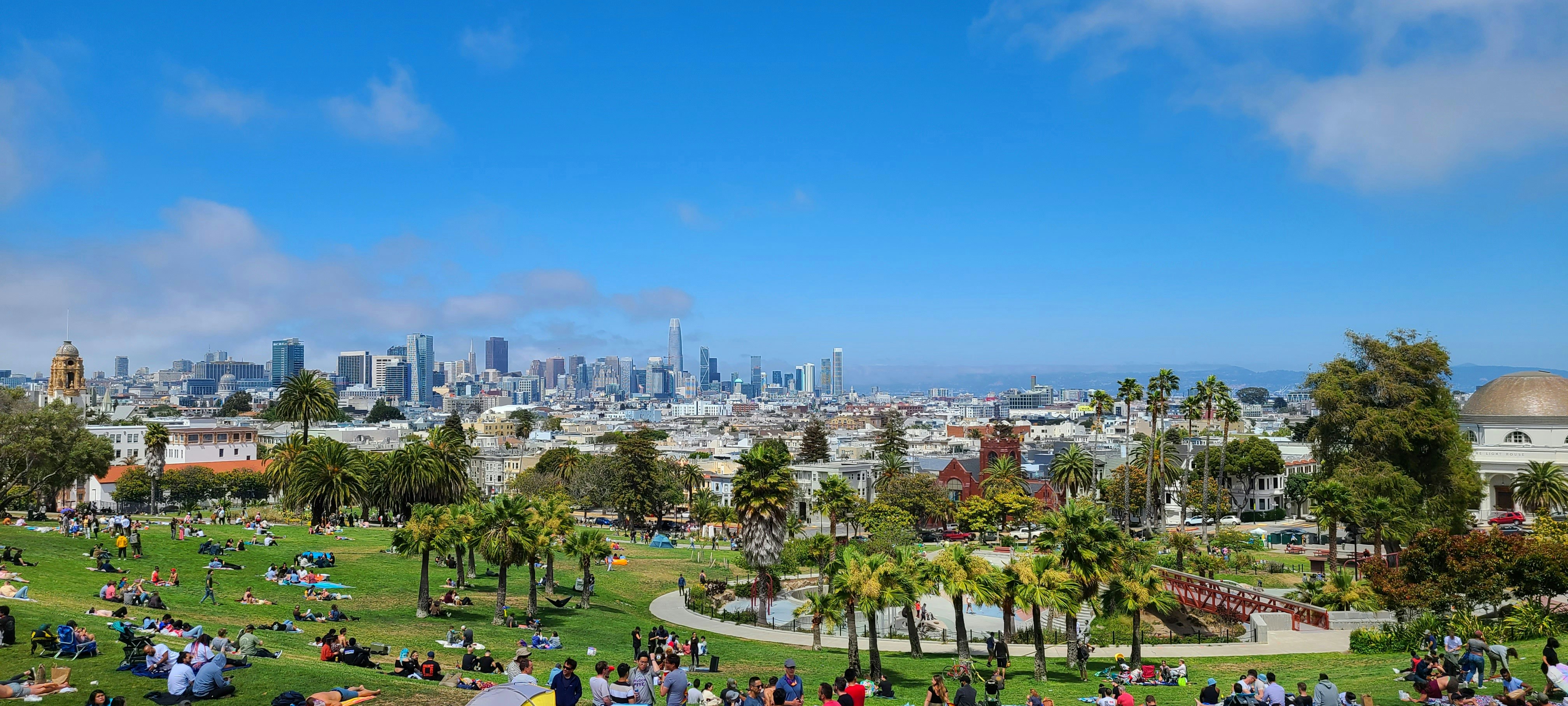
Source: Leo Korman on Unsplash
-
San Francisco, California
California has been at the forefront of climate change, and the state government helps fund a large percentage of grant programs. They have come to rely on sustainable practices to help combat droughts and wildfires that ravage the state. In San Francisco, local regulations make recycling compulsory for businesses and residents. It was also the first city to adopt a large-scale food waste composting program, where the end product is used by farmers.
Green hotels in San Francisco are designed to be energy efficient, use organic cleaning products, and offer public transport incentives to employees. The city is also biker-friendly, with many interconnected bike trails. Moreover, you can participate in sustainable and non-touristy things to do in San Francisco.
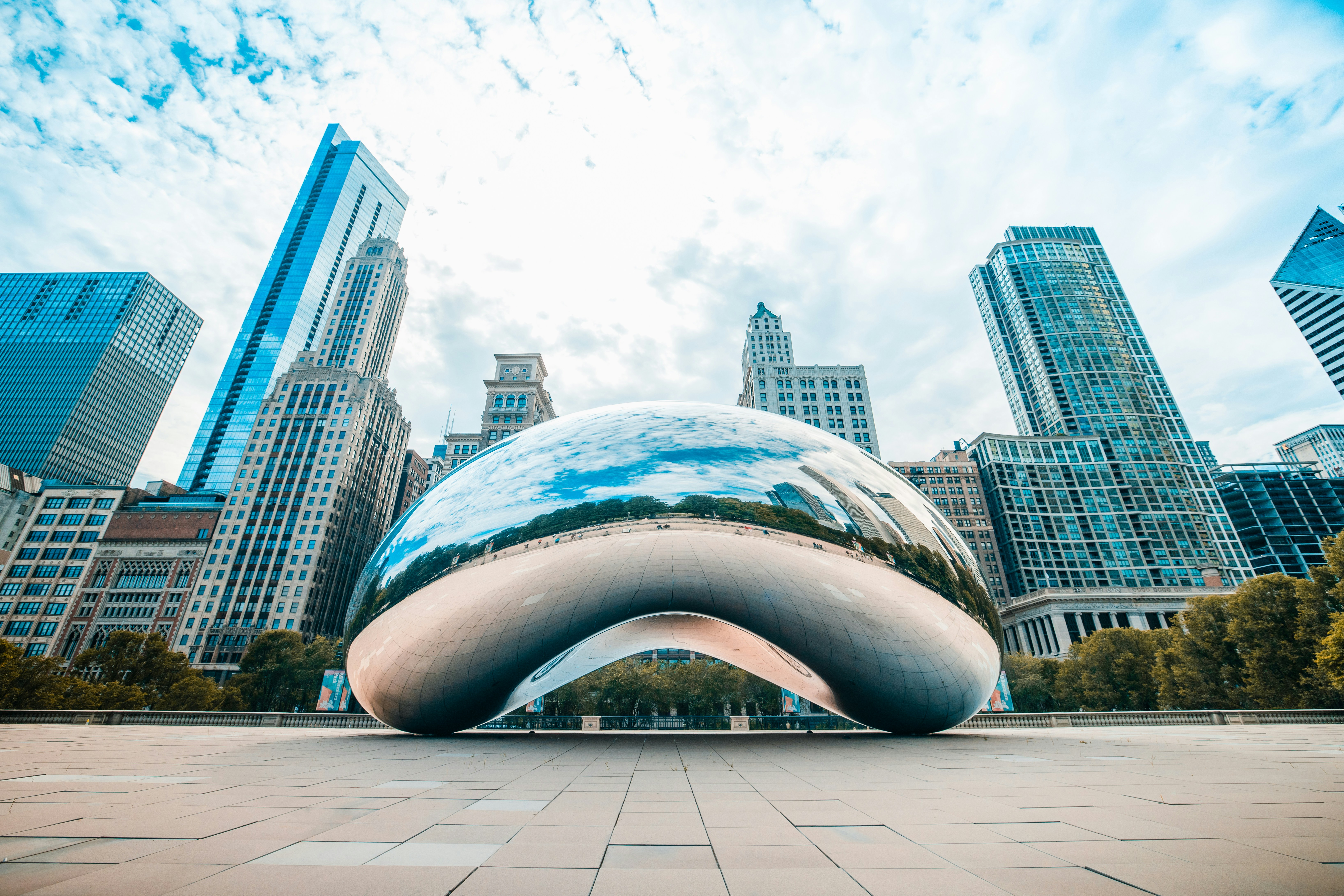
Source: Christopher Alvarenga on Unsplash
-
Chicago, Illinois
This city is working towards reducing its carbon footprint by reducing waste and implementing recycling programs. The Sustainable Operations Plan makes it mandatory for all city facilities to follow sustainable practices, which include pest control and sustainable purchasing. Additionally, green hotels in Chicago are luxurious properties that have made sustainability their number one priority.
Sustainable attractions in the city include green museums such as Peggy Notebaert Nature Museum and Chicago History Museum. Tourists can also explore Chicago Riverwalk and green spaces such as Millennium Park. Don’t forget to tour the city’s food markets, which are the best places to pick up fresh local and seasonal produce.
Other North American destinations with eco-hotels
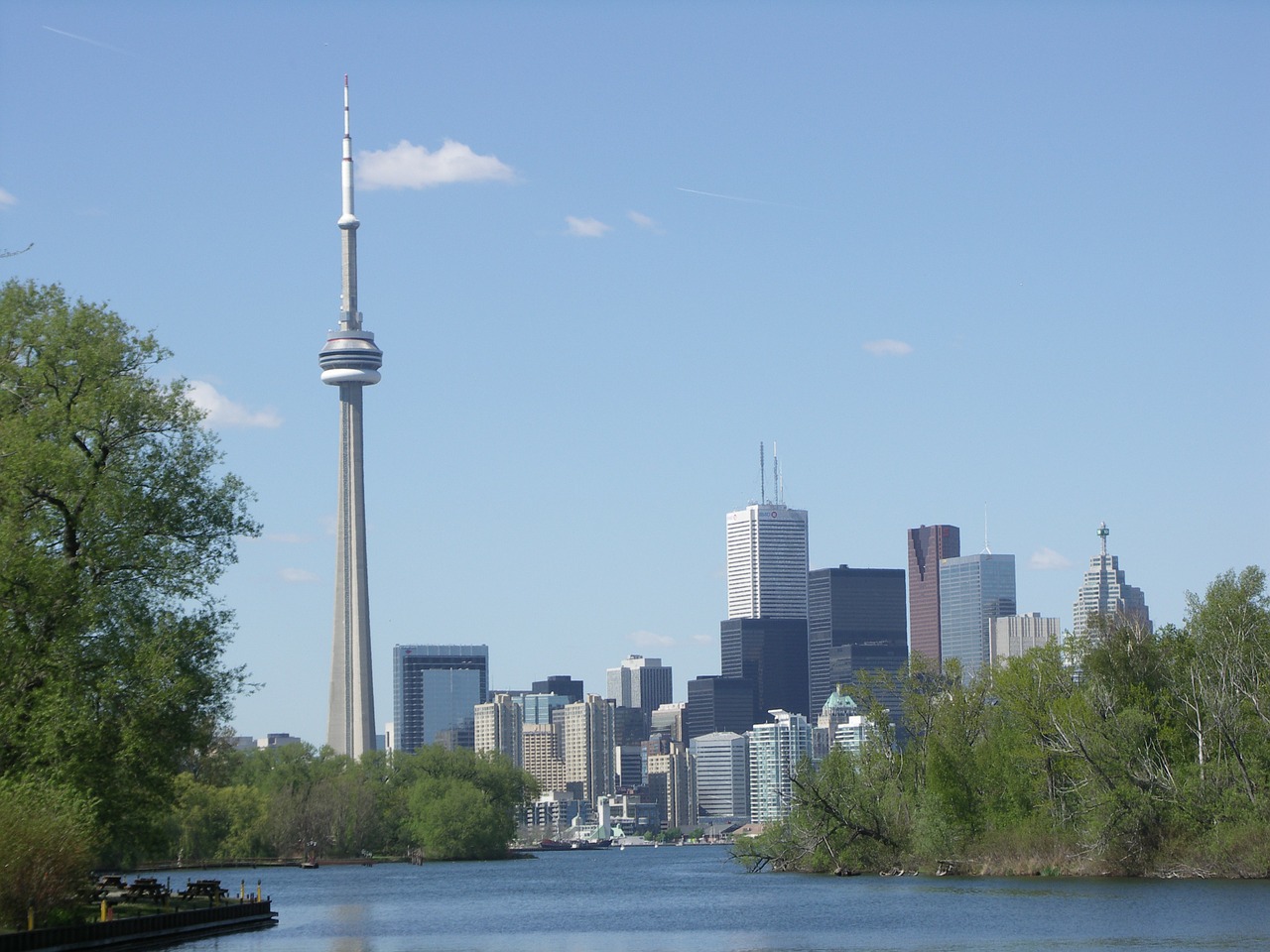
Source: Needpix.com
-
Toronto, Canada
Toronto aims to become one of the most sustainable cities in the world with its TransformTO Net Zero Strategy. The plan is to achieve city-wide net zero emissions by 2040. The centrally located green hotels in Toronto are the best way to experience the city sustainably. You can even opt for an efficient public transport system, which includes bus, subway, streetcar, and ferry, which is the backbone of the city and will transport tourists to top local attractions. Additionally, Toronto maintains a green space of around 1,500 parks, the largest of which is the local favorite, High Park. It includes picnic areas, hiking trails, and sports facilities.
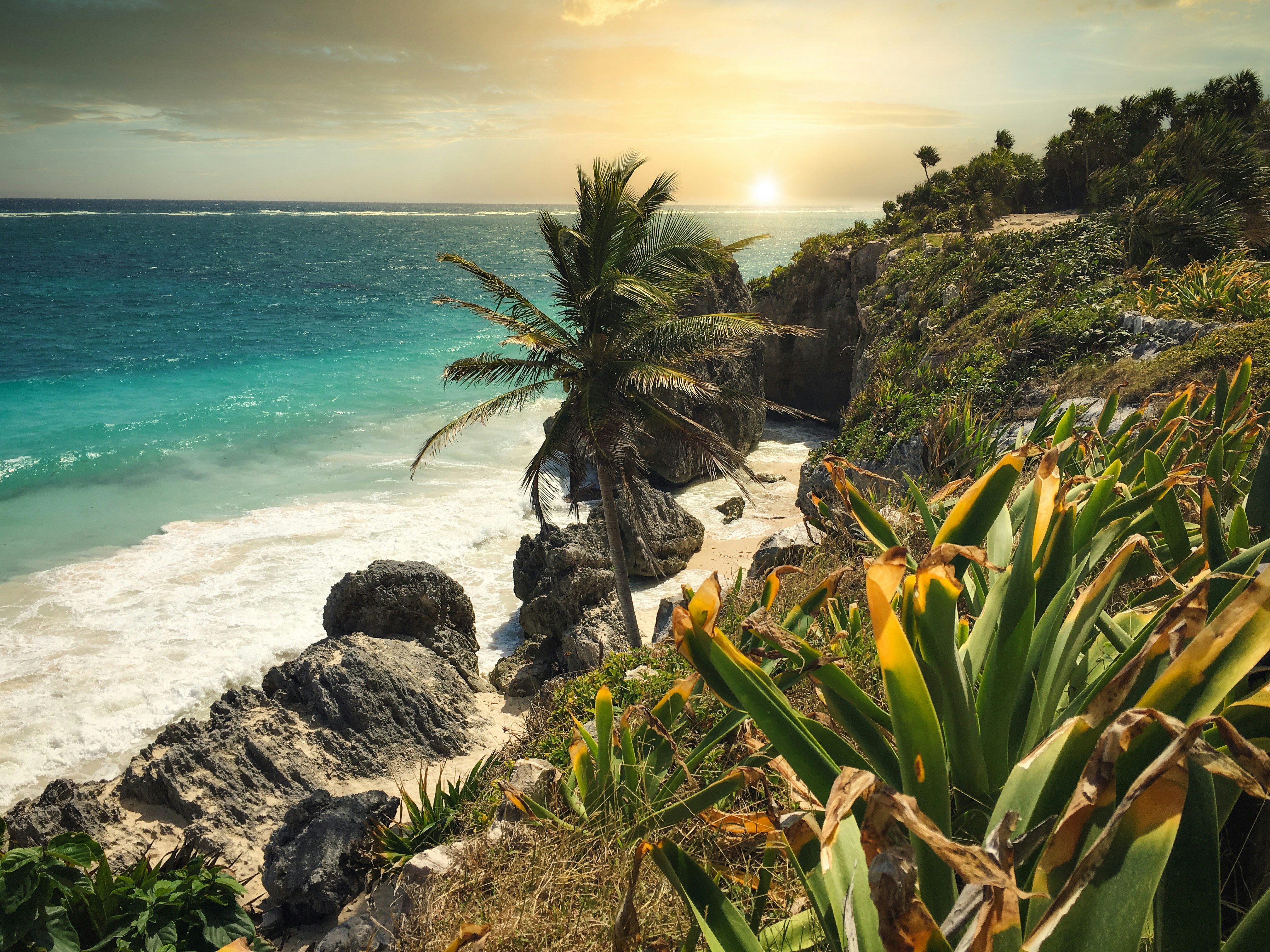
Source: Darren Lawrence on Unsplash
-
Tulum, Mexico
A combination of Mayan ruins, lip-smacking cuisine, and a stunning Caribbean-facing coastline has helped cement Tulum as one of the top destinations in Mexico. Tourism fuels the economy, and to help sustain it in the long run, eco-hotels in Tulum take serious steps to protect the surrounding natural landscapes. Many are constructed using natural materials and are designed to maximize the filtration of natural light.
The UNESCO World Heritage Site of Sian Ka'an Biosphere Reserve is a top sustainable attraction where tourists can swim in cenotes and kayak to explore deep within the protected land. It's also possible to book community-based educational tours to learn more about biodiversity and conservation efforts in the area.
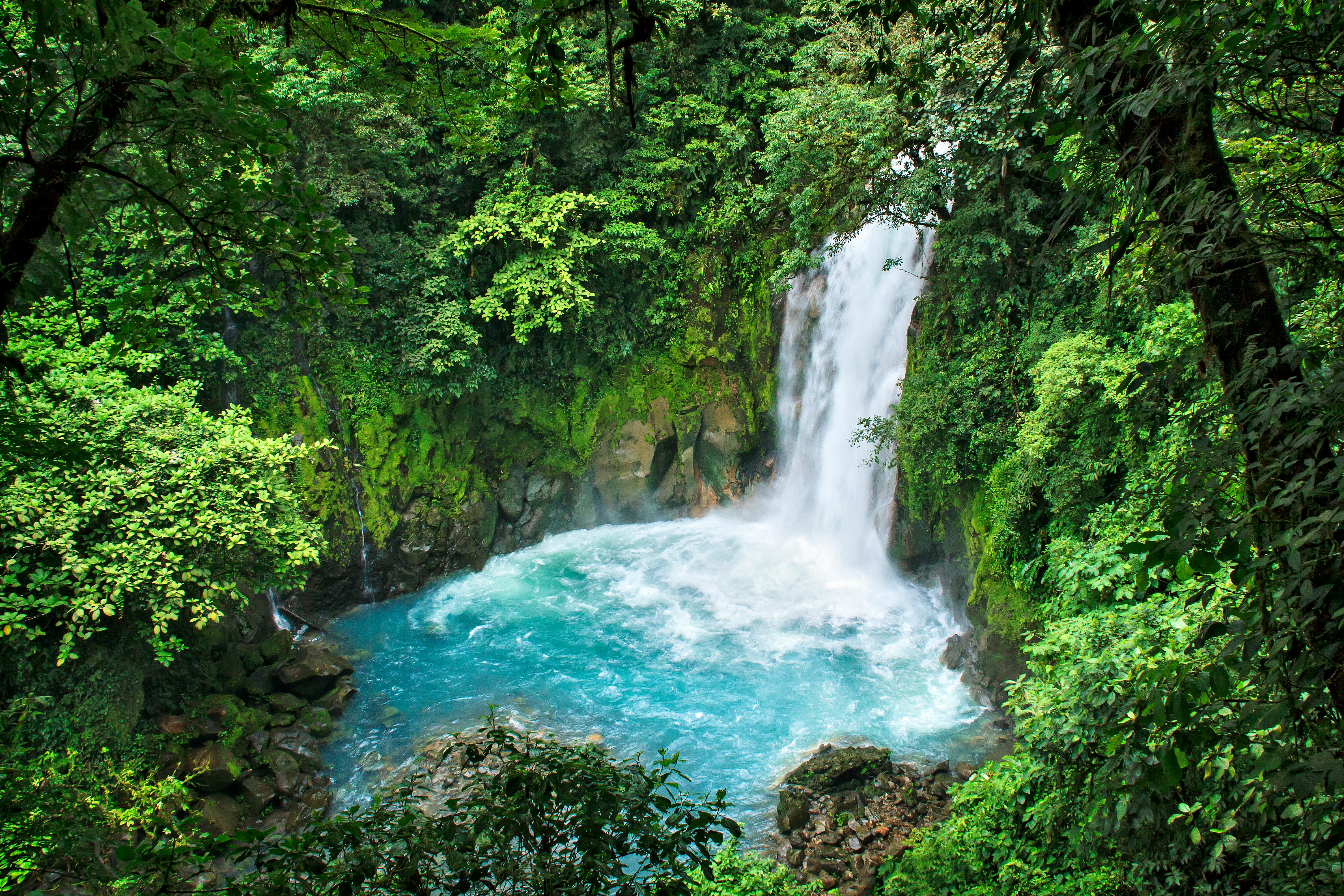
Source: sterlinglanier Lanier on Unsplash
-
Costa Rica
Countries that rely on tourism feel the pinch the most when tourist numbers drop due to any factors. Therefore, they actively support and champion sustainable tourism practices that will ensure that the natural habitats and local culture are preserved for generations to come.
Costa Rica offers many interesting things to do, including learning about local coffee production on a picturesque farm. Tourists can also visit Monteverde Cloud Forest, a nature reserve that's home to countless indigenous plants and over 400 types of orchids. Travelers can complement their visit to the country with a stay at one of the stunning eco-hotels in Costa Rica.
Destinations with eco-hotels in Europe

Source: Sander Crombach on Unsplash
-
London, England
London is one of the best cities to travel sustainably. The Tube is the city's lifeline and transports hundreds of thousands of passengers daily. London also aims to be a zero-carbon city by the year 2050 and is pushing to reduce waste directed to landfills.
Tourists can hop on the Tube to travel around the city and use the trains for day trips to nearby destinations such as Oxford or Cotswold. Sustainable attractions in the city include Hyde Park, Kensington Gardens, and electric-powered boat rides along the city canals. Moreover, London can be experienced best from luxe and affordable green hotels that cater to families and corporate travelers.
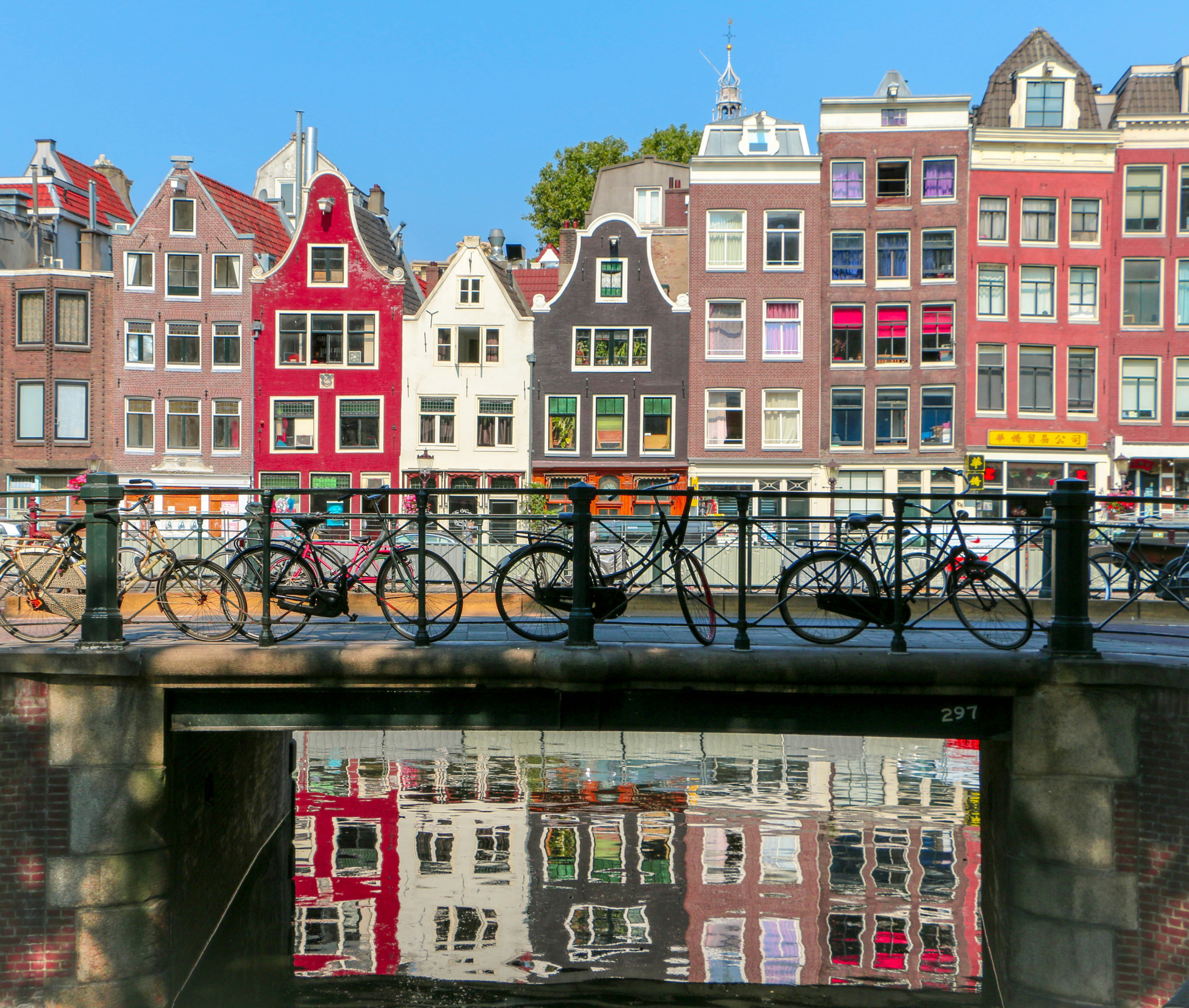
Source: Gaurav Jain on Unsplash
-
Amsterdam, Netherlands
Amsterdam has always been ahead of its time, whether it's LGBTQ+ rights or sustainability. This is one of the most environmentally friendly cities in the world, where locals prefer bikes over cars. There are abundant green spaces and it's easy to walk and use public transport when not cycling. Amsterdam also topped the Schroders European Sustainable Cities Index 2021.
When traveling to a green city, it only makes sense to book a stay at sustainable hotels for your holiday. Tourists can even explore the canals on pedal boats, picnic in the parks, and dine at eco-friendly restaurants. Additionally, De Ceuvel is an interesting business park concept where houseboats have been repurposed to serve as work and dining spaces in the city.

Source: Adam Vradenburg on Unsplash
-
Berlin, Germany
Berlin is another European destination that's one of the most sustainable cities in the world. Tourists flock to Berlin to visit many historical monuments and museums. Visitors can head to Frea to experience the world’s first vegan and zero-waste restaurant. Additionally, eco-hotels in Berlin also include sustainable restaurants.
This city has over 2,500 parks, which include Grunewald Forest and Volkspark Friedrichshain. Moreover, the city government encourages and provides complimentary certifications for companies and businesses in the tourism sector that are actively taking steps to improve sustainability.
Destinations with eco-hotels in Asia
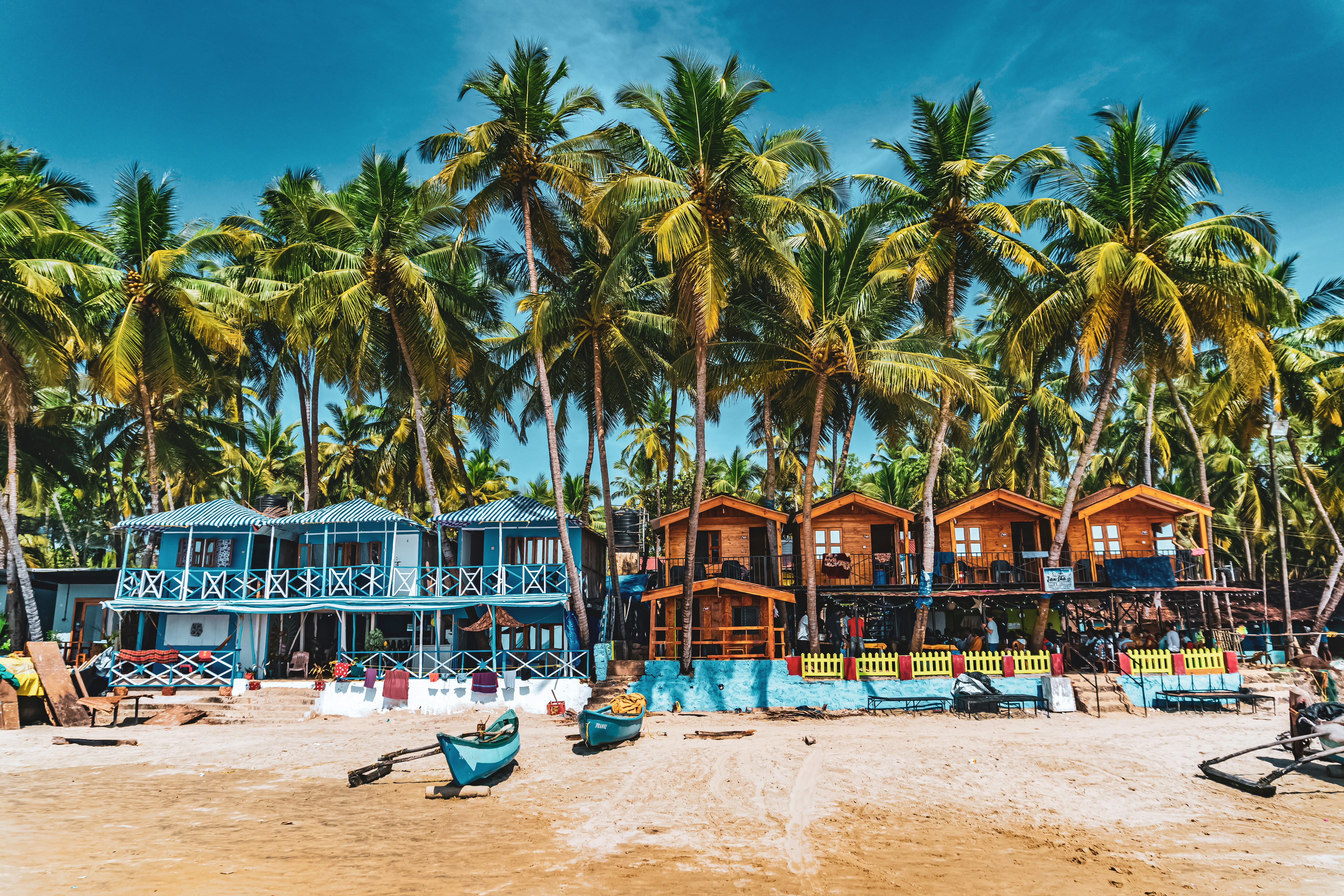
Source: Sumit Sourav on Unsplash
-
Goa, India
Goa is probably one of the most visited Indian destinations and has been welcoming tourists long before the country witnessed a tourism boom. The influx of tourists has also meant a strain on the natural resources and environment, which is why the government, in partnership with locals, is finding new avenues to divert tourism activities. Visitors who wish to explore Goa sustainably can choose to go on coastal hikes, kayak through caves, and visit wildlife sanctuaries. While most eco-hotels in Goa are luxury properties, it's possible to find affordable options as well. These hotels are actively taking steps to ensure that the coastal waters and Goan mangroves are protected. Alternatively, visitors can choose a homestay for a more authentic experience in this former Portuguese colony.

Source: Hector John Periquin on Unsplash
-
Boracay, Philippines
The island of Boracay is famous for its white sandy beaches and crystal clear waters, which have made it one of the most popular diving destinations. In 2018, the island was closed to tourists for six months so that it could be cleaned, and to take a step towards naturally rehabilitating native plant and animal species.
Since then, the island of Boracay has taken constructive steps to lead the way for sustainable tourism in the Philippines. When visiting a fragile ecosystem such as this place, it's a must to stay at an eco-hotel to play your part in helping counter the negative impact of tourism.

Source: Chema Photo on Unsplash
-
Bali, Indonesia
Bali's beaches, forests, and cultural attractions have always attracted tourists. Families on the island are just as common as honeymooners and groups of friends on a holiday. Moreoveer, the eco-hotels here offer some of the most picturesque settings while taking initiatives to help conserve the surrounding natural areas.
Diving and surfing are two of the most popular sustainable activities on the island that support local operators. It's also possible to join a coral reef restoration program as part of a volunteer tour holiday on the island.
Ubud is the cultural center of the island and can be explored on e-bikes as you navigate rice terraces and stop at temples. Visitors can also explore organic farms in Ubud and learn how to cook a Balinese meal.
Destinations with eco-hotels in the Caribbean

Source: Asael Peña on Unsplash
-
Dominican Republic
This country is a popular destination in the Caribbean and famous for its golf resorts. But what truly sets the island apart is that its government has taken action to reduce greenhouse emissions and marine and land pollution so that it continues to remain a hub of tourist activity for future generations.
Eco-hotels in the country can be found on its famous beaches as well as deep within national parks, allowing tourists to experience its varied landscape. In addition to indulging in a traditional Caribbean holiday, travelers can visit Indigenous Eyes Ecological Park & Reserve, volunteer with sea turtle conservation, or participate in community development projects.
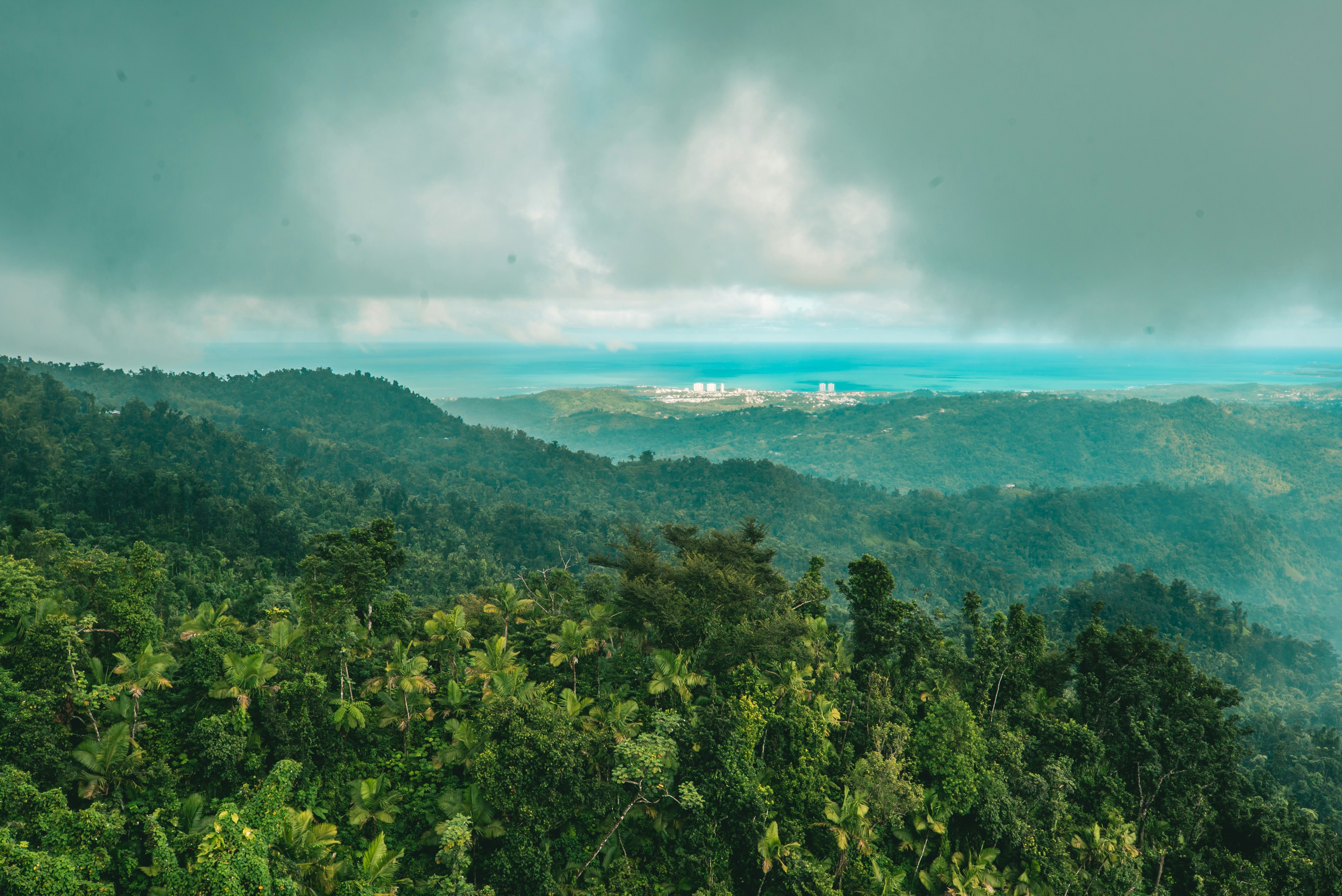
Source: Beau Horyza on Unsplash
-
Puerto Rico
Thanks to many locally and community-led initiatives, Puerto Rico has witnessed a surge in sustainable tourism. These have helped the island expand its tourist attractions while generating income to protect its tropical forests. It's possible to stay close to these protected reserves when booking an eco-hotel in this place.
Sustainable tourism on the island can lead travelers away from the tourist trail when they choose to go on exploration-based and immersive tours. These can be diving in La Parguera, a bioluminescent bay, rock climbing outside the town of Vega Baja, and hiking through Guánica’s Dry Forest.
Destinations with eco-hotels in Africa

-
South Africa
South Africa boasts a rich cultural and natural heritage, which the government tries to protect. It's promoting conservation efforts while pushing for development and social reform. Tourists can begin their South African adventure from eco-hotels in Cape Town, some of which are on hills overlooking scenic bays and lush forest reserves.
Visitors can also book eco-hotels deep within a nature reserve or stay at a community-maintained lodge managed by the Xhosa community.

Source: Youssef Ahmed on Unsplash
-
Egypt
The majestic pyramids of Egypt and the sunny towns along the Red Sea are some of the most popular sites for tourists. Green hotels in Egypt can be found in the capital Cairo, as well as the seaside resort towns such as El Gouna. Mainstreaming Biodiversity in Egypt’s Tourism (MBDT) and the United Nations Development Programme (UNDP) are pushing for sustainable tourism to conserve the country’s limited water resources and threatened ecosystems. The Egyptian government has also divided the high-impact area around the Red Sea into zones to limit development near fragile coastal areas and protect the marine environment.

Source: Harshil Gudka on Unsplash
-
Kenya
The annual wildebeest migration in Kenya, along with the protected national and marine parks, is the biggest attraction that draws tourists to the country. Private organizations and indigenous grassroots organizations are fueling the change in tourism practices in the country. They're aiming to make community-based tourism mainstream and educate communities to host tourist-based sustainable activities. There are also several eco-hotels in Kenya found in popular reserves and on rural Rusigna Island.
Things to remember when planning a sustainable vacation
Things to remember when planning a sustainable vacation

Source: Ragnar Vorel on Unsplash
-
Finding the ideal location
The beauty of sustainable travel is that it's possible in major cities as well as in off-beat destinations. Cities such as Amsterdam and Berlin are popular sustainable travel destinations that offer excellent public transport, ideal for urban travelers. If you don't mind being cut off from social media, an immersive jungle experience is also a great option.
If you're unsure about sustainable travel options, begin by taking small steps and book an eco-hotel or a sustainable tour before embarking on a full-fledged holiday.
-
Choosing the perfect accommodation
Travelers can book eco-hotels or other sustainable accommodations while traveling. Other than the simple, rustic properties, there are also accommodations managed by luxe hotel brands such as Banyan Tree and Aman Resorts.
Hotel websites usually display a sustainability badge and provide a detailed outline of the eco-friendly practices that they follow. These can include the use of alternative energy, waste management, recycling programs, and restaurants with seasonal menus.
-
Booking a long-term stay
Ideally, the best way to travel sustainably and immerse yourself in the destination is to stay for at least a week, preferably longer. Therefore, most volunteer programs are at least two weeks in length. This allows the visitors to educate themselves about the destination, mark any problems the community might be facing, and offer constructive solutions. Staying longer in one place also means better utilization of public transport.
-
Packing light
With social media expectations at an all-time high, users are tempted to generate content that will get them maximum likes. This includes content about traveling to exotic locations, multiple outfit changes, and posing against breathtaking backdrops. Well, sustainable travel can offer all that minus the outfit changes.
Packing light means you can easily carry your luggage over short distances and use public transportation such as buses and trains without worrying about multiple bags. Traveling with only essentials is also a freeing experience. A sustainable travel kit begins with a sturdy backpack and includes easy-to-wash comfortable clothes, eco toiletries, reusable water bottles, canvas totes, and your phone charger. Make sure to follow a "leave no trace" policy when traveling. If you're unsure about the level of hygiene when visiting a remote location, carry biodegradable soap strips. Moreover, always pack an additional bag for collecting waste to be disposed of later.
-
Practicing responsible recreation and photography
As for recreational activities, it's best to enjoy those while being considerate of local customs and traditions, fragile ecosystems, and the overall well-being of the community. For example, when photographing heritage monuments, make sure to respect the local culture while getting your Insta-worthy shot. If you're visiting indigenous villages or farms, always ask the host before taking photographs.
The future of tourism is dependent on sustainable travel
The future of tourism is dependent on sustainable travel

Source: Jeremy Bishop on Unsplash
For tourism to be sustained in the long run and for tourist-centric economies to survive, steps are needed to be taken by local governments in partnership with the tourism industry and local communities. Travelers should also opt for sustainable tourism practices and help make them the norm. With the combined effort of all the stakeholders, it's possible to achieve the goal of a greener earth.
Eco-hotels in the Americas
Eco-hotels in Europe
Eco-hotels in Asia
Eco-hotels in Africa and the Middle East
Eco-hotels in the Caribbean and Oceania


























































Create an account to